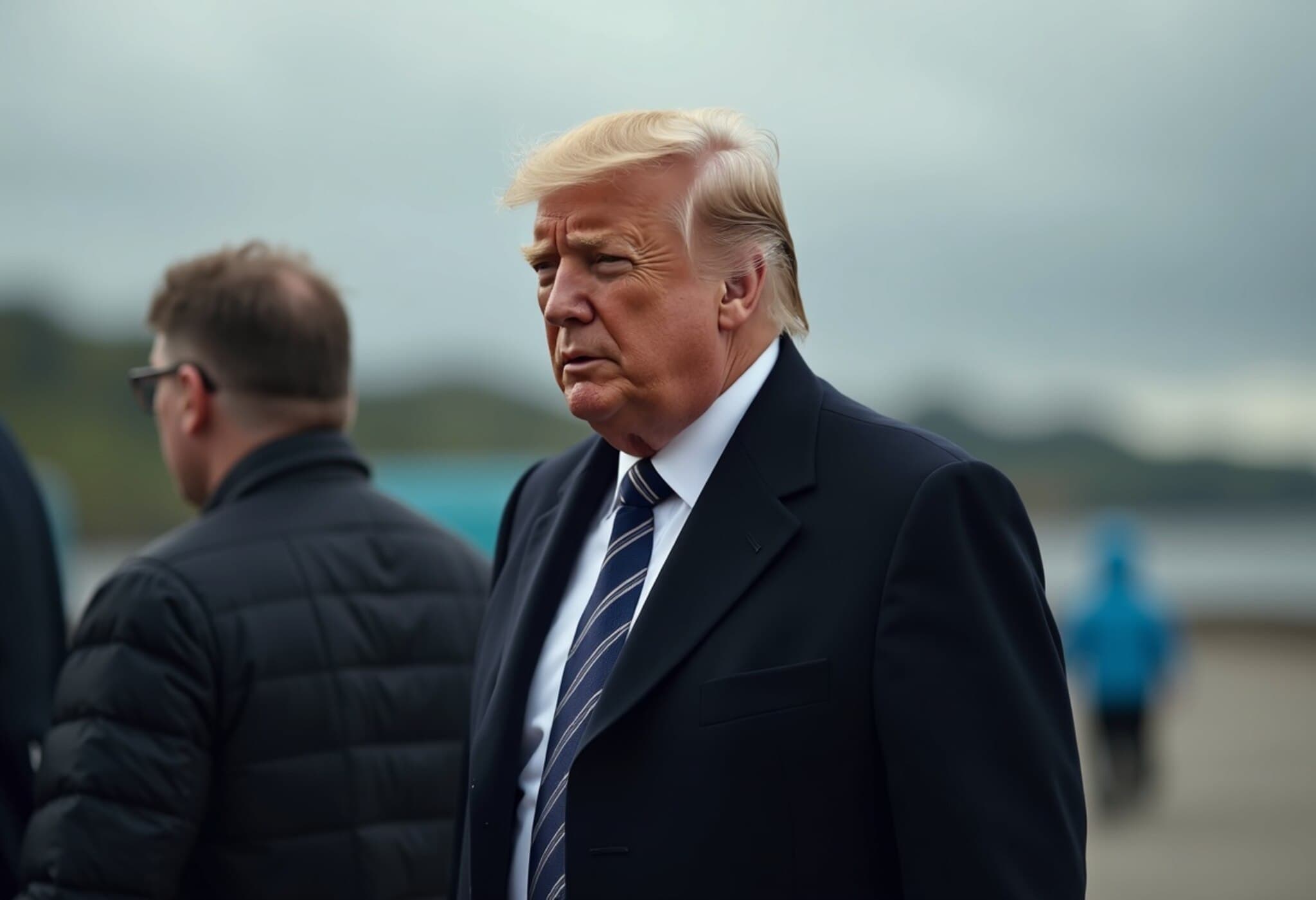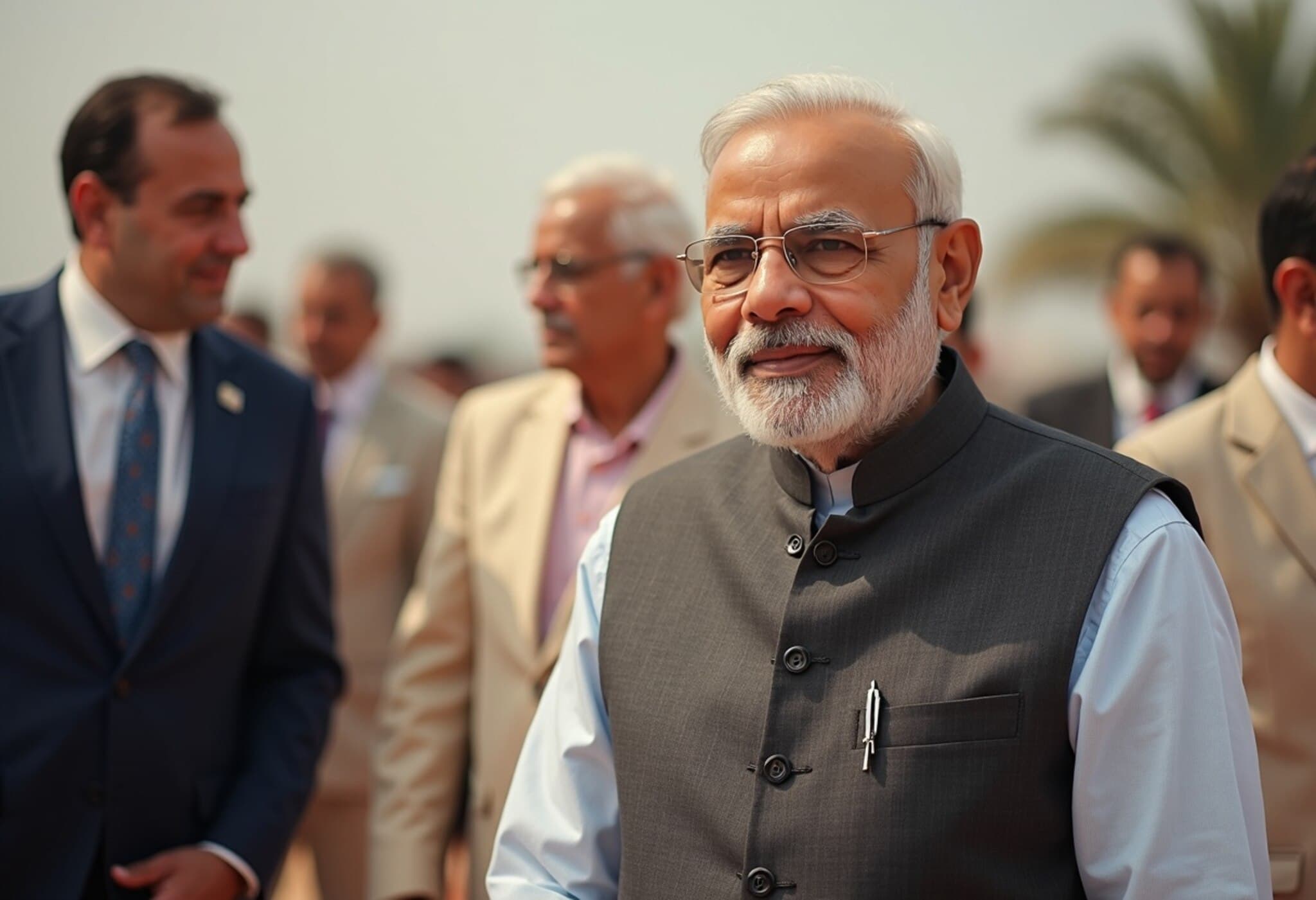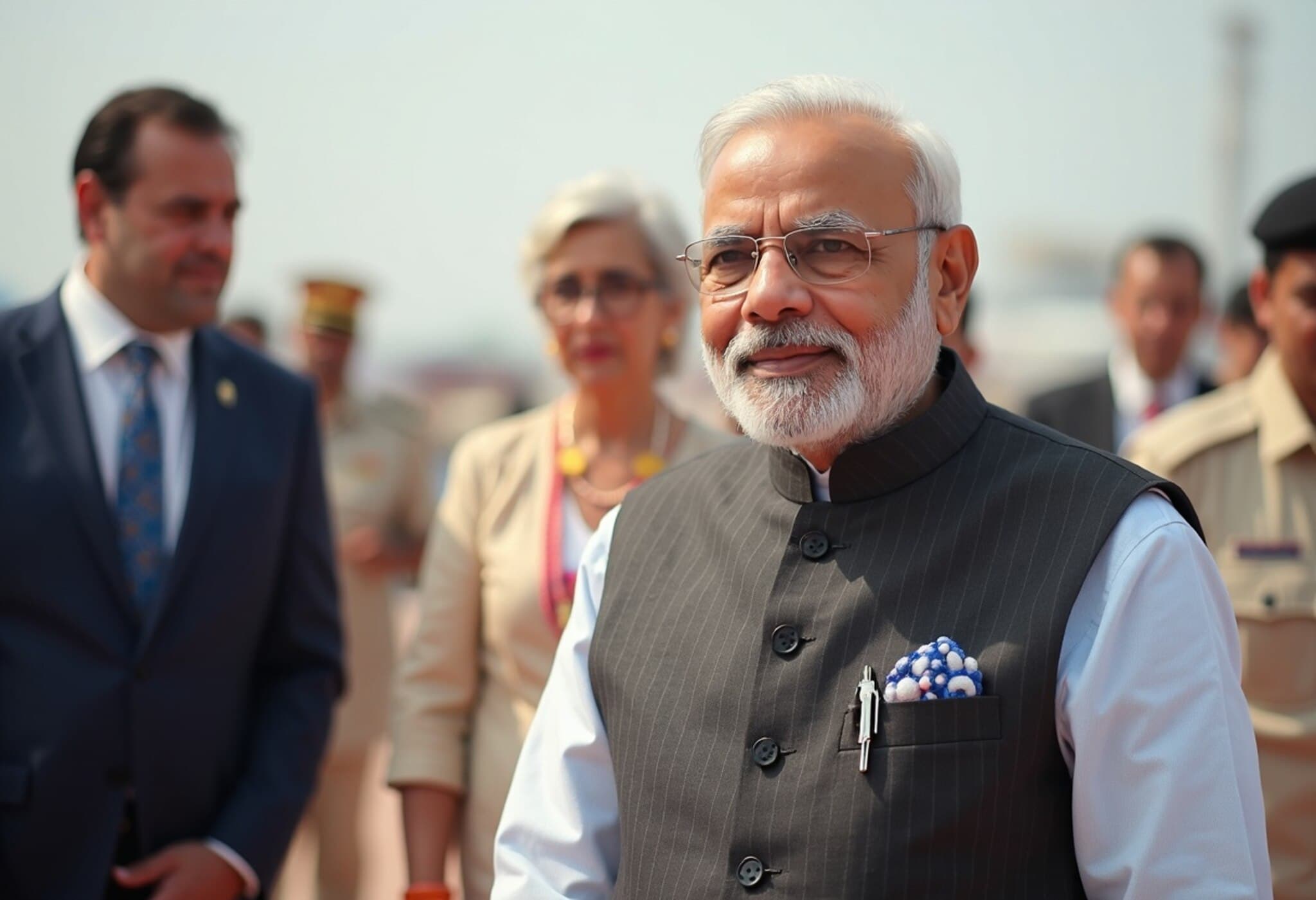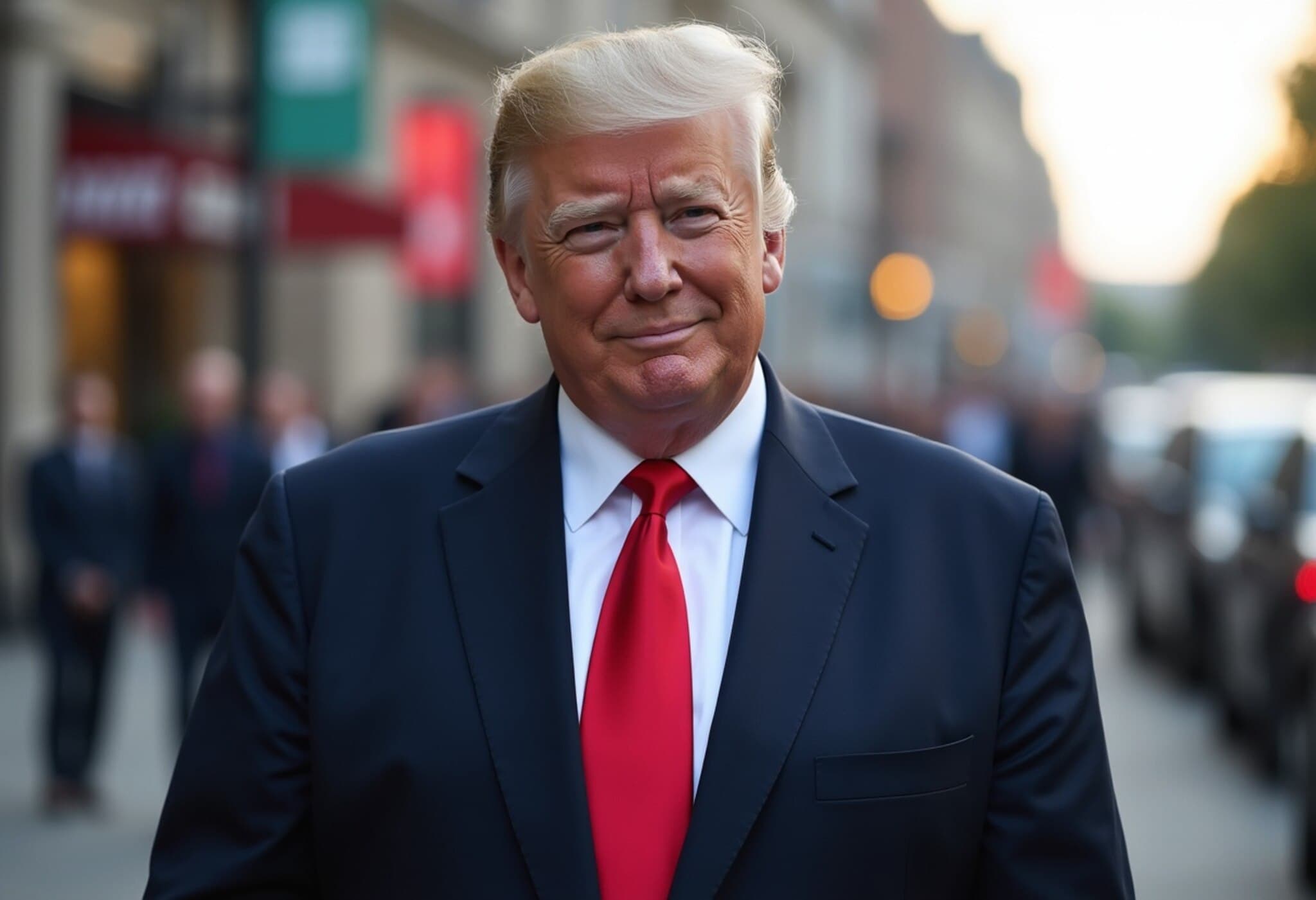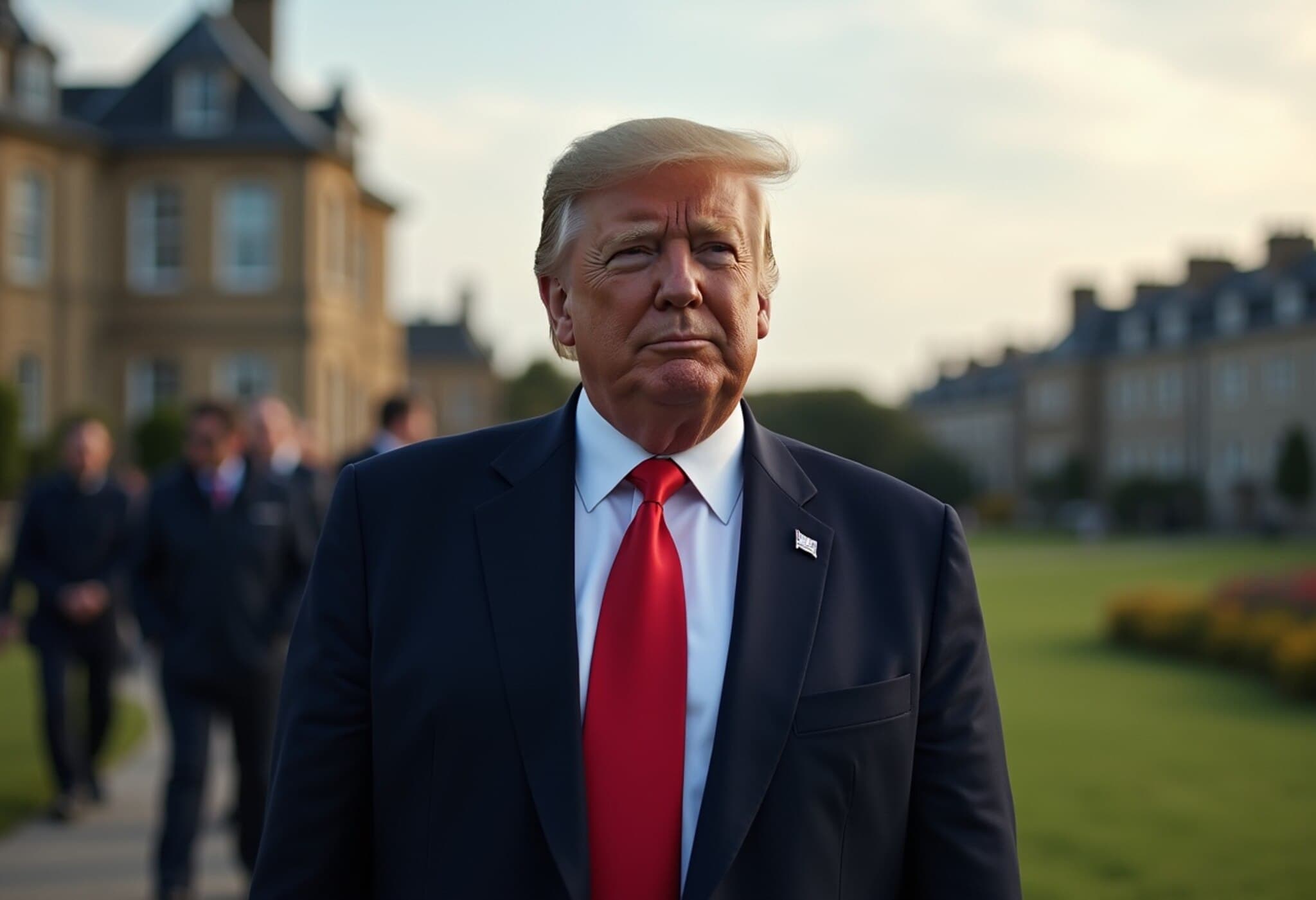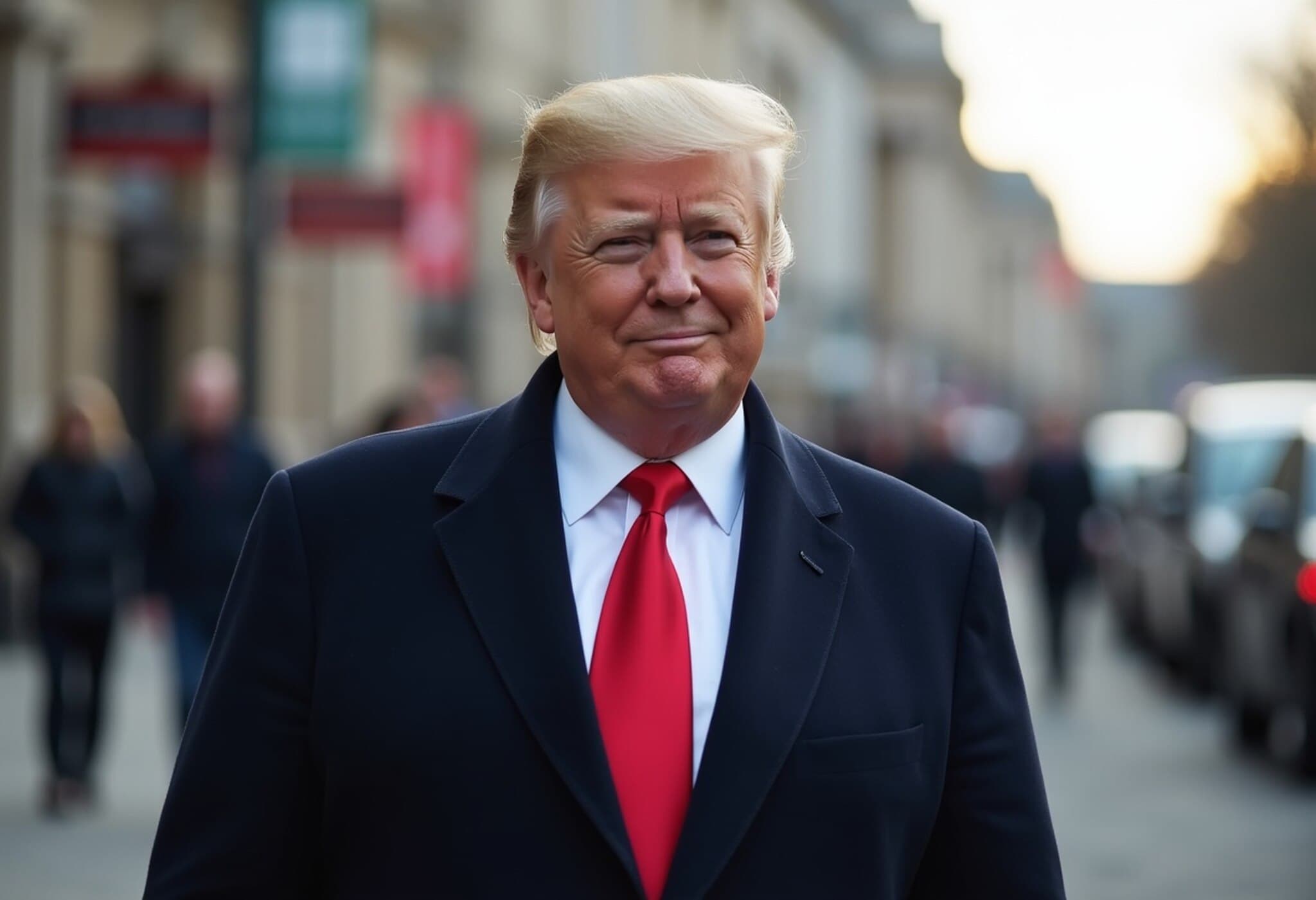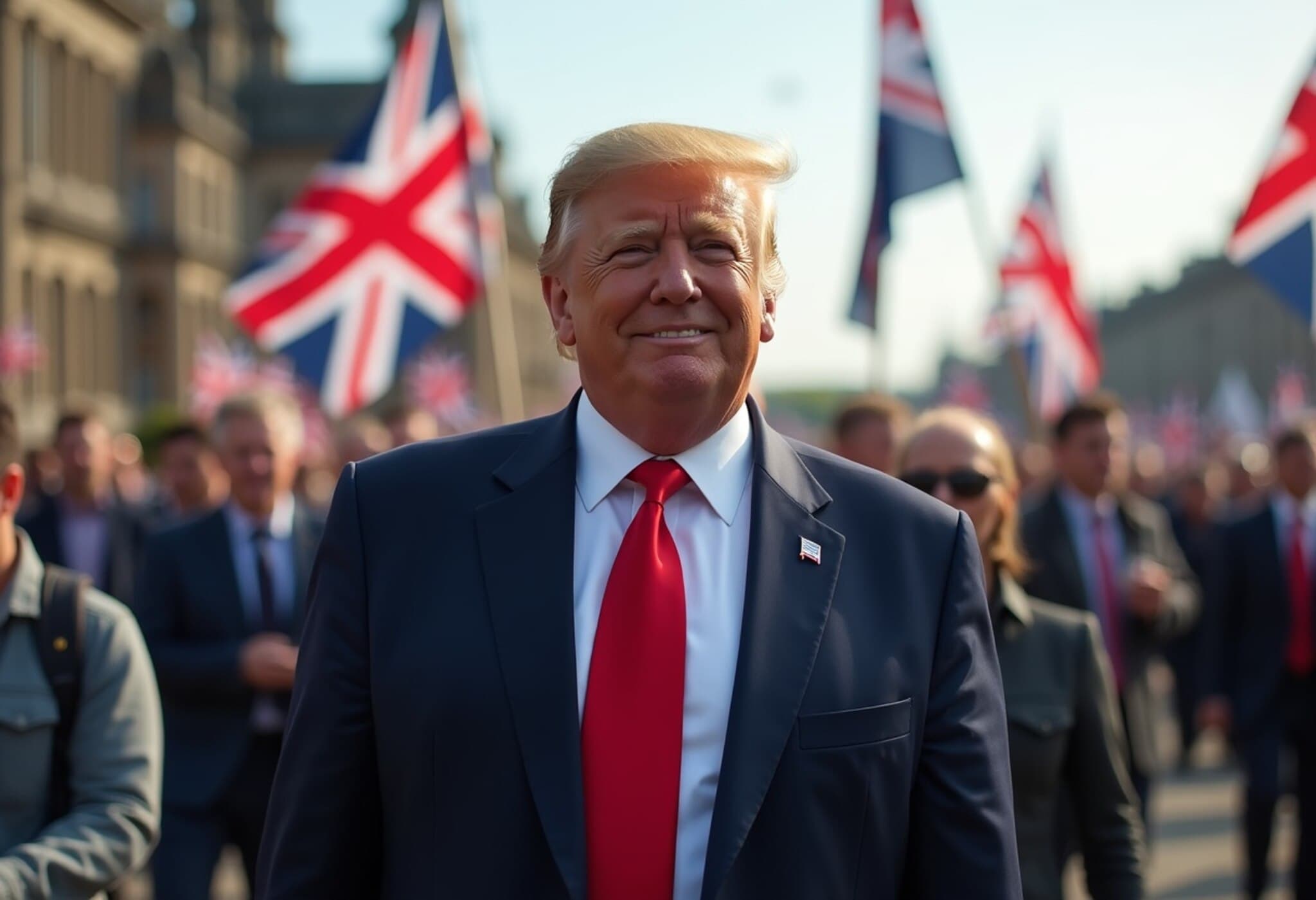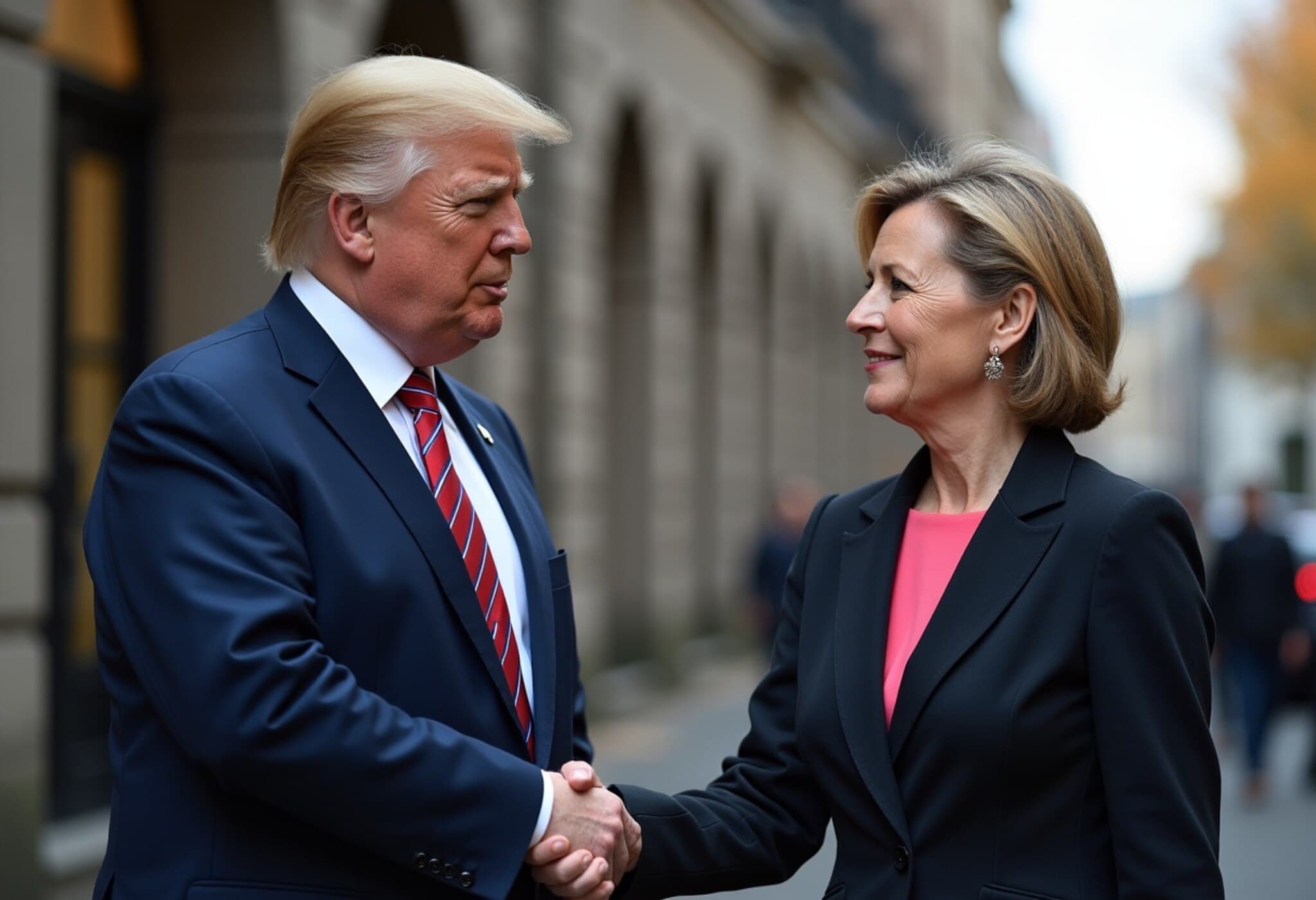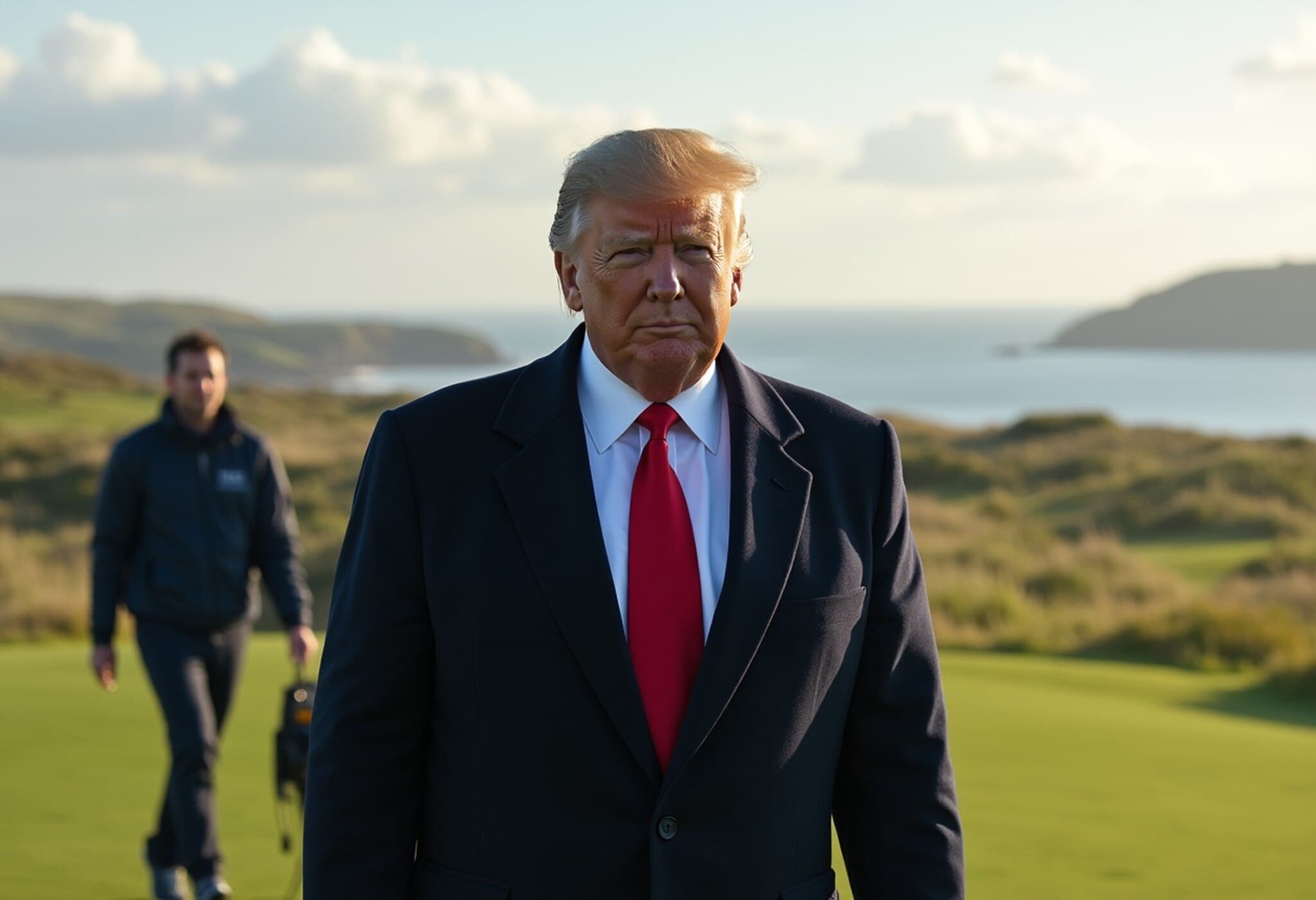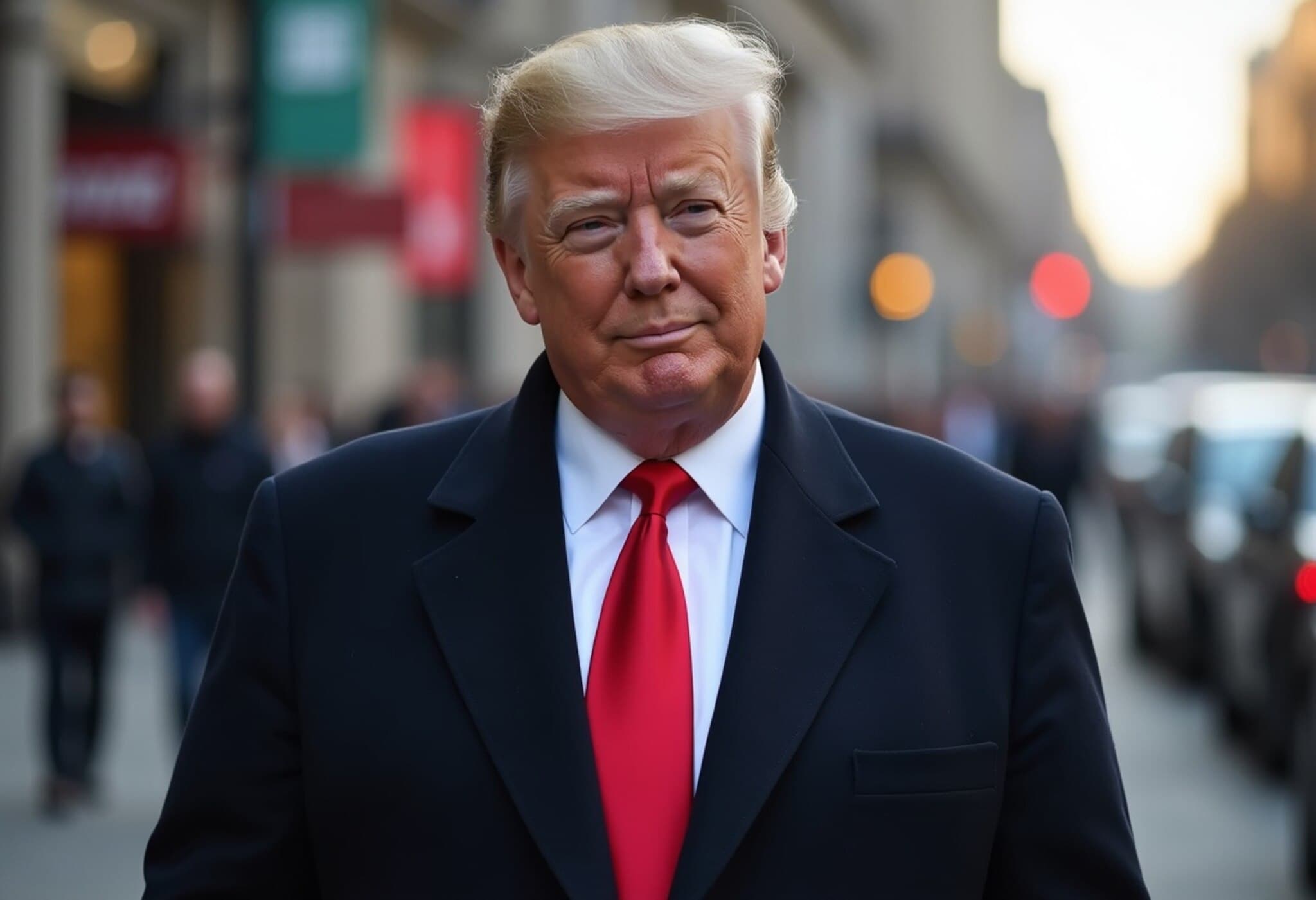Trump Touches Down in Scotland for Golf and High-Stakes Trade Negotiations
On July 26, 2025, U.S. President Donald Trump arrived in Scotland where he plans to enjoy rounds of golf while simultaneously engaging in pivotal talks aiming to solidify a major trade agreement with the European Union (EU). This visit comes at a crucial juncture as negotiations near a potential deal that could reshape transatlantic commerce.
Upon arrival at his Turnberry golf resort—amid cheers from supporters and a visible security presence—Trump emphasized his meetings with British Prime Minister Keir Starmer and European Commission President Ursula von der Leyen, whom he lauded as a "highly respected woman." The president cautiously put the chances of securing a deal at "50-50," acknowledging ongoing sticking points but highlighting the deal’s potential as the largest trade agreement of his administration if finalized.
Trade Talks: Promise and Complexity
Insiders in Brussels suggest the emerging agreement would likely establish a tariff of about 15% on EU goods, aligning with a recently concluded trade framework between the EU and Japan, significantly lower than the 30% tariffs Trump threatened to impose by early August. Since April, Trump's administration has aggressively pursued tariff hikes across trading partners to reduce the US trade deficit and increase government revenues. Yet, economists express caution, warning these tariffs may elevate inflation and disrupt global supply chains.
Controversy Overshadows Visit
Despite the high-profile agenda, Trump's arrival coincides with heightened scrutiny surrounding his administration’s ties to Jeffrey Epstein, the disgraced financier and convicted sex offender whose 2019 prison death triggered extensive investigations. Frustrated by the persistent media focus, Trump urged reporters to shift the narrative away from himself and toward other prominent figures linked to Epstein, including former President Bill Clinton and influential hedge fund executives.
"You make it a very big thing over something that's not a big thing," Trump remarked, defending his record by saying, "we have the greatest six months in the history of a presidency." Polls reveal growing unease even among his core supporters about transparency in the Epstein case, highlighting a potential vulnerability in Trump’s political standing.
Forging Stronger Transatlantic Relations
Beyond the trade discussions, Trump’s itinerary includes visits to his Scottish golf properties in Turnberry and Aberdeen, where he will inaugurate a new 18-hole course named after his mother, Mary Anne MacLeod, a tribute resonating with his personal heritage. This cultural nod underlines Scotland’s special place in Trump’s life and presidency.
On the diplomatic front, meetings with Prime Minister Starmer and Scottish Deputy First Minister John Swinney are designed to deepen UK-U.S. ties, particularly around pressing geopolitical challenges such as Russia’s invasion of Ukraine and the escalating humanitarian crisis in Gaza.
Starmer, who enjoys relatively warm relations with Trump compared to past British leaders, has prioritized a strengthened defense and security alliance with the United States since assuming office. The discussion is expected to focus on tariff reductions in sensitive sectors like steel, although sources indicate that breakthroughs during this short visit remain uncertain.
Public Opinion and Protests
Trump's Scotland visit occurs against a backdrop of sharply divided public opinion. Ipsos polling from March shows that about 70% of Scots harbor unfavorable views of the former president, while less than a fifth express favorable opinions. Local authorities have prepared for protests in both Aberdeen and Edinburgh, signaling vocal opposition to Trump’s presence.
Looking Ahead: Trump’s Upcoming State Visit to the UK
Trump’s Scottish trip precedes a state visit to the United Kingdom planned for September 17-19, where he will be hosted by King Charles. This will mark an unusual occurrence: Trump will be the first world leader in recent memory to undertake two separate state visits to the UK, having previously been hosted by the late Queen Elizabeth at Buckingham Palace in 2019.
Expert Insight: The Broader Implications
Trump’s dual focus on leisure and diplomacy underscores a strategic attempt to leverage symbolic goodwill through golf and heritage alongside hard-nosed trade negotiations. Experts observe that the success or failure of the EU deal could have ripple effects on the 2026 U.S. midterm elections and redefine America's economic posture globally.
Moreover, the Epstein controversy serves as a stark reminder of the persistent vulnerabilities political leaders face when private and public spheres overlap under intense scrutiny. How the administration manages this dual narrative—balancing policy progress with personal scandals—will likely shape public and international perceptions in the months to come.
Editor’s Note
President Trump’s visit to Scotland encapsulates the complexities of modern political leadership, intertwining personal legacy, global diplomacy, and domestic controversy. As the EU trade deal negotiations hang in the balance, the juxtaposition with the Epstein investigation raises pressing questions about transparency and trust in governance. Observers should watch closely how these layers influence not only international relations but also the fabric of U.S. political discourse.

